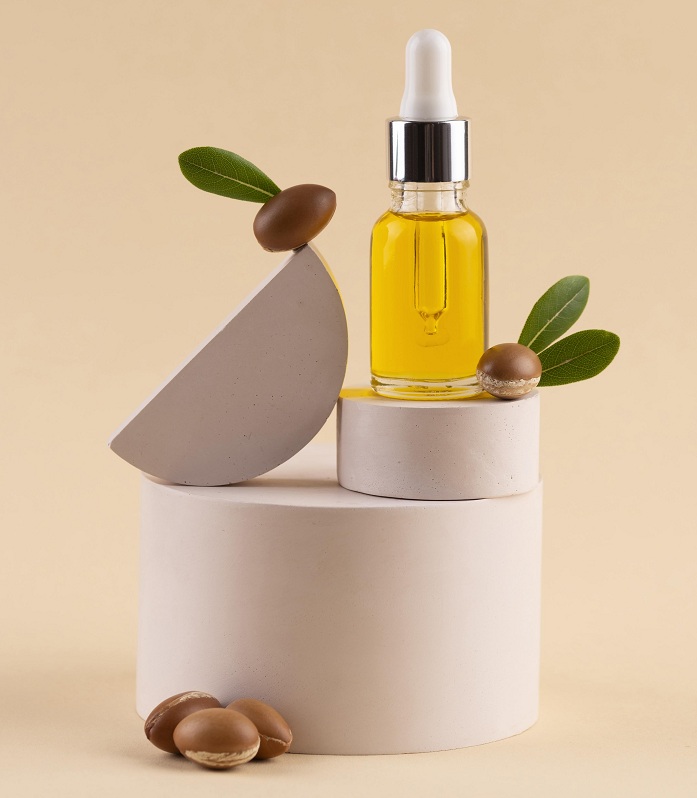
If you’re seeking a solution to enhance your skin’s health and appearance, look no further than Global Beauty Care Facial Oil Vitamin C. Packed with powerful antioxidants, this skincare product can brighten your complexion, reduce fine lines and wrinkles, and shield your skin from environmental stressors. Combined with Nao Medical’s nutrition services, you can achieve glowing, healthy skin.
Discover the Benefits of Vitamin C Facial Oil for Your Skin
Vitamin C facial oil is a skincare product that contains a high concentration of vitamin C, a powerful antioxidant that offers numerous benefits for the skin. Here are some in-depth details about the benefits of using vitamin C facial oil:
- Antioxidant Protection: Vitamin C is known for its potent antioxidant properties. It helps neutralize free radicals, which are unstable molecules that can damage the skin and accelerate the aging process. By using a vitamin C facial oil, you can protect your skin from environmental stressors like pollution, UV radiation, and toxins.
- Brightens the Complexion: Vitamin C is a key ingredient in many brightening skincare products. It inhibits the production of melanin, the pigment responsible for dark spots and uneven skin tone. Regular use of vitamin C facial oil can help fade hyperpigmentation, resulting in a brighter and more even complexion.
- Boosts Collagen Production: Collagen is a protein that provides structure and elasticity to the skin. As we age, collagen production naturally declines, leading to the formation of wrinkles and sagging skin. Vitamin C stimulates collagen synthesis, helping to maintain the skin’s firmness and elasticity. By incorporating a vitamin C facial oil into your skincare routine, you can promote a more youthful appearance.
- Reduces Inflammation: Vitamin C has anti-inflammatory properties that can help calm irritated and inflamed skin. It can be beneficial for individuals with conditions like acne, rosacea, or sensitive skin. The soothing effects of vitamin C can help reduce redness, swelling, and discomfort associated with these skin concerns.
- Enhances Skin Repair: Vitamin C plays a crucial role in the skin’s natural healing process. It aids in the production of new skin cells, which can help repair damaged skin and fade scars or blemishes. By using a vitamin C facial oil, you can support the skin’s ability to regenerate and recover from various forms of damage.
- Protects Against Sun Damage: While vitamin C cannot replace sunscreen, it can provide an additional layer of protection against harmful UV rays. It helps to neutralize free radicals generated by sun exposure, reducing the risk of sunburn and long-term damage. Incorporating a vitamin C facial oil into your morning skincare routine can help fortify your skin’s defense against UV radiation.
- Hydrates and Nourishes: Many vitamin C facial oils contain additional moisturizing ingredients that can help hydrate and nourish the skin. These oils can provide essential fatty acids and nutrients that promote a healthy skin barrier, preventing moisture loss and maintaining a soft and supple complexion.
It’s important to note that the effectiveness of vitamin C facial oil can vary depending on the formulation, concentration, and stability of the vitamin C used. It’s recommended to choose a product with a stable form of vitamin C, such as ascorbic acid or its derivatives, and to store it properly to maintain its potency. Additionally, it’s advisable to patch test any new skincare product and consult with a dermatologist if you have specific skin concerns or conditions.
Why Global Beauty Care’s Vitamin C Facial Oil Stands Out
Global Beauty Care’s Vitamin C Facial Oil stands out for several reasons.
Firstly, it contains a high concentration of vitamin C, which is known for its numerous benefits for the skin. Vitamin C is a powerful antioxidant that helps to protect the skin from free radicals, which can cause premature aging and damage. It also helps to brighten the skin, reduce the appearance of dark spots and hyperpigmentation, and promote collagen production, leading to firmer and more youthful-looking skin.
Additionally, Global Beauty Care’s Vitamin C Facial Oil is formulated with other beneficial ingredients that work synergistically with vitamin C to enhance its effects. These ingredients may include other antioxidants like vitamin E, which further protect the skin from environmental damage, and hyaluronic acid, which helps to hydrate and plump the skin.
The oil-based formula of this facial oil is another standout feature. Unlike water-based serums or creams, oils have a higher concentration of active ingredients and can penetrate the skin more deeply. This allows the vitamin C and other beneficial ingredients to work more effectively and deliver noticeable results.
Furthermore, Global Beauty Care’s Vitamin C Facial Oil is lightweight and non-greasy, making it suitable for all skin types. It absorbs quickly into the skin without leaving a heavy or sticky residue, making it ideal for both daytime and nighttime use.
The packaging of this facial oil is also worth mentioning. It typically comes in a dark glass bottle with a dropper, which helps to protect the product from light and air exposure, preserving its potency and effectiveness.
Lastly, Global Beauty Care is a reputable brand known for its high-quality skincare products. They prioritize using natural and effective ingredients, and their products are often dermatologist-tested and cruelty-free.
Overall, Global Beauty Care’s Vitamin C Facial Oil stands out due to its high concentration of vitamin C, synergistic formulation with other beneficial ingredients, oil-based formula for deeper penetration, lightweight and non-greasy texture, protective packaging, and the brand’s commitment to quality and effectiveness.
Enhance Your Skin Health with Nao Medical’s Nutrition Services
The Role of Nutrition in Skin Health
At Nao Medical, we firmly believe that good nutrition is the foundation of good health, including healthy skin. Our nutrition services are designed to help you achieve your health and wellness goals, including improving your skin health.
Sub-headline: Personalized Nutrition Plans for Optimal Skin Health
Our team of registered dietitians at Nao Medical offers personalized nutrition plans tailored to your unique needs and goals. We can guide you in making healthy food choices that support your skin health, including foods rich in antioxidants like vitamin C.
Conclusion: Global Beauty Care’s Vitamin C Facial Oil is a powerful skincare product that can significantly improve your skin’s health and appearance. When combined with a healthy diet and lifestyle, it can help you achieve radiant, healthy skin. Book an appointment with Nao Medical today to learn more about how our nutrition services can support your skin health.
Famous Ingredients
1
Algin
What it does: Masking
Algin is brown algae. Algae is an informal term for a group of aquatic organisms that can photosynthesize. It is estimated there are at least 30,000 types of Algae.
Algae contains antioxidants. Antioxidants help fight free-radicals. Free-radicals are molecules that may damage your skin cells, such as pollution.
2
Glycerin
What it does: Humectant, Skin Conditioning, Skin Protecting, Solvent
Glycerin is already naturally found in your skin. It helps moisturize and protect your skin.
A study from 2016 found glycerin to be more effective as a humectant than AHAs and hyaluronic acid.
3
Squalane
What it does: Emollient, Skin Conditioning
Squalane is an emollient that helps the skin hold onto moisture. It’s an oily liquid that occurs naturally in certain types of fish and plant oils.
Because squalane boosts hydration in the skin, it also comes with plenty of benefits: it is an antioxidant and can help fight free radicals and skin damage. Squalane is also found to have a detoxifying effect when applied.
4
Beta-Glucan
What it does: Skin Conditioning
Beta-Glucan is a polysaccharide. It can be derived from the cell walls of seaweed, oats, yeast, and fungi.
Beta-Glucan is a humectant, meaning it can hold large amounts of water. This helps hydrate the skin. It also helps boost your skin’s natural barrier.
5
Lactic Acid
What it does: Buffering, Humectant, Skin Conditioning
Lactic Acid is an AHA that is derived from fermenting lactose, a carbohydrate from milk. It removes the top layer of old and dead skin cells and helps increase cell turnover.
Benefits of Lactic Acid are that it can help to reduce large pores and reduce the effects of aging. Some potential downsides are that it can be bad for dry skin, cause irritation, worsen eczema, and worsen rosacea.
6
Glycolic Acid
What it does: Buffering
Glycolic Acid is arguably the most famous AHA with research to back up its benefits. Its main role is to peel the top layer of skin cells from the newer layer of skin underneath. This helps skin to remove dark spots and look more even.
Glycolic Acid has shown to boost collage production, a protein that helps skin stay firm. Overall, Glycolic Acid helps with improving uneven tone, rough patches of skin, fine lines, wrinkles, and sun damage. It also increases skin hydration by playing a role in creating molecules that create hyaluronic acid naturally.
7
Niacinamide
What it does: Smoothing
Niacinamide has emerged as an all-star ingredient due to its many benefits.
It is known to treat acne by reducing inflammation. It also helps fade dark-spots and strengthen the skin by promoting the growth of the ceramide barrier.
8
Ceramide 3
What it does: Skin Conditioning
Ceramide 3 is a form of ceramide.
Ceramides are intercellular lipids naturally found in our skin that bonds dead skin cells together to create a barrier. They are known for their ability to hold water and thus are a great ingredient for dry skin.
9
Tocopheryl Acetate
What it does: Antioxidant, Skin Conditioning
Tocopheryl Acetate is AKA Vitamin E. It is an antioxidant and protects your skin from free radicals. Free radicals damage the skin by breaking down collagen.
One study found using Tocopheryl Acetate with Vitamin C decreased the number of sunburned cells.
10
Lactobionic Acid
What it does: Buffering
Lactobionic Acid is a PHA. PHAs exfoliate the top layer of skin.
PHAs are more gentle than AHAs due to their larger structure. They do not penetrate as deeply as AHAs and take a longer time to dissolve dead cells. Studies show PHAs do not cause as much irritation.
11
Glycyrrhiza Glabra Root Extract
What it does: Bleaching, Emollient, Skin Conditioning, Smoothing, Soothing
Glycyrrhiza Glabra Root Extract is an extract of the roots of Licorice. It has been found to have several benefits such as skin hydrating, conditioning, and soothing.
One component, glabridin, has extra potent antioxidant and soothing properties. It has also been found to block pigmentation from UVB rays in guinea pigs.
12
Phenoxyethanol
What it does: Preservative
Phenoxyethanol is a preservative that has germicide, antimicrobial, and aromatic properties. Studies show that phenoxyethanol can prevent germ and microbial growth. By itself, it has a scent that is similar to that of a rose.
It’s often used in formulations along with Caprylyl Glycol to preserve the shelf life of products.
13
Propylene Glycol
What it does: Humectant, Skin Conditioning, Solvent
Propylene Glycol is an odorless, colorless liquid. As a humectant, it helps skin retain moisture. It also aids in delivering active ingredients.
Another role of this ingredient is preventing a product from melting or freezing. Propylene glycol also adds antimicrobrial properties to a product, elongating product lifespan.
14
2-O-Ethyl Ascorbic Acid
What it does: Skin Conditioning
2-O-Ethyl Ascorbic Acid is a form of Vitamin C. It can help to reduce redness, improve skin texture, reduce the effects of aging, and reduce the visibility of dark spots.
15
Carbomer
What it does: Emulsion Stabilising, Gel Forming
Carbomer is a polymer of acrylic acid. Its main role is to create gel consistency within products.
Carbomer is commonly found in many types of cosmetics products. It is found to be safe in concentrations up to 15%. However, a high amount of carbomer can cause pilling or balling up of products. Most products contain 1% of less of carbomer.
16
Triethanolamine
What it does: Buffering, Emulsifying, Masking
Triethanolamine is an emulsifier and pH adjuster. It is created using ethylene oxide and ammonia. This gives Triethanolamine a nitrogen core and a similar scent to ammonia.
As an emulsifier, it prevents ingredients from separating and enhances texture by adding volume to a product.
17
Xanthan Gum
What it does: Emulsifying, Emulsion Stabilising, Gel Forming, Skin Conditioning
Community Rating:Disliked
Xanthan gum is used as a stabilizer and thickener within cosmetic products. It helps give products a sticky, thick feeling – preventing them from being too runny.
On the technical side of things, xanthan gum is a polysaccharide – a combination consisting of multiple sugar molecules bonded together.
18
Chlorphenesin
What it does: Antimicrobial, Preservative
Chlorphenesin is a synthetic preservative. It helps protect a product against bacteria in order to extend shelf life. In most cases, Chlorphenesin is paired with other preservatives such as phenoxyethanol and caprylyl glycol.
Chlorphenesin is a biocide. This means it is able to help fight the microorganisms on our skin. It is also able to fight odor-releasing bacteria.
19
Hexylene Glycol
What it does: Emulsifying, Skin Conditioning, Solvent
Hexylene Glycol is a surfactant. Glycols are a class of alcohols. Hexylene Glycol is a surfactant and emulsifier.
As a surfactant, Hexylene Glycol helps gather dirt and oil on your skin to be washed away.
20
1,2-Hexanediol
What it does: Skin Conditioning, Solvent
1,2-Hexanediol is a multi-tasker ingredient. It acts as a preservative to increase shelf-life and can aid other preservatives in preventing microbe growth. 1,2-Hexanediol also helps the skin retain moisture as a humectant.
In products that are water-based, this ingredient can help stabilize perfumes and fragrances. It can also help make the texture of products softer and more smooth.
21
Gluconolactone
What it does: Skin Conditioning
Gluconolactone is a PHA and exfoliates the skin. PHAs have a larger structure than AHAs and BHAs and are more gentle.
When applied, Gluconolactone has the same affect on skin as AHAs such as lactic acid. It helps dissolve the dead skin cells in the top layer of your skin. This helps improve texture and brightens the skin.
22
Water
What it does: Skin Conditioning, Solvent
Water. It’s the most common cosmetic ingredient of all. You’ll usually see it at the top of ingredient lists, meaning that it makes up the largest part of the product.
So why is it so popular? Water most often acts as a solvent – this means that it helps dissolve other ingredients into the formulation.
23
Peg-40 Hydrogenated Castor Oil
What it does: Emulsifying
Peg-40 Hydrogenated Castor Oil is derived from castor oil and polyethylene glycol (PEG). It is used as a emollient and emulsifier.
As an emulsifier, it helps prevent ingredients from separating. It also helps make the other ingredients more soluble; it is often used to solubilize fragrances. This increases spreadability and elongates shelf life in a product.
24
Ethylhexylglycerin
What it does: Skin Conditioning
Ethylhexylglycerin (we can’t pronounce this either) is commonly used as a preservative and skin softener. It is derived from glyceryl.
You might see Ethylhexylglycerin often paired with other preservatives such as phenoxyethanol. Ethylhexylglycerin has been found to increase the effectiveness of these other preservatives.
25
Hydrogenated Lecithin
What it does: Emulsifying, Skin Conditioning
Hydrogenated Lecithin is created from the hydrogenation of lecithin. Hydrogenation is a chemical reaction between molecule hydrogen and another element.
Hydrogenated Lecithin is an emollient and emulsifier. As an emollient, it helps soften skin by trapping moisture within.
26
Cholesterol
What it does: Emollient, Emulsifying, Skin Conditioning, Stabilising
Cholesterol is a class of organic molecules called lipids. It helps hydrate your skin and is essential to having a healthy skin barrier.
Our skin naturally contains cholesterol in the outermost layer. Besides cholesterol, it also contains ceramides and fatty acids. Cholesterol makes up about 1/4 of your skin’s outer layer and barrier. Your skin barrier is responsible for keeping allergens and microbes out. Having a healthy skin barrier is also responsible for keeping your skin firm and plump.
27
Iodopropynyl Butylcarbamate
What it does: Preservative Iodopropynyl Butylcarbamate is a preservative






